1 Larger or 2 Smaller Water Heaters
I am new to the plumbing forum and looking for guidance on water heater options. We are building a new home and I am not sure what direction to go for hot water. There are two us who take showers in the AM (one after the other) and there will be a deep soaking tub (more than 50 gallons) that will be used frequently. In our current home, we have a 50 gallon heater and one of us ends up with a shorter shower to avoid lukewarm/cold water. I can't fill the tub without running out of hot water.
I want to avoid this in the new house and the builder is suggesting two 50 gallon water heaters rather than one larger heater.
What is the best way to go? Is one option less expensive/better than the other?
I mentioned a tankless system for the Master bath but the builder looked at me like a deer caught in headlights. His standard according to him is 2 50 gallon tanks and he has never had a client request a tankless or anything other than 2 50's or so he says.
Thanks for the guidance.
Michelle
Comments (43)
Ozone89
12 years agoFirst you have to tell us if your house is going to be electric -gas - propane.
How many people live in the home?
If you have natural gas, Bradford white makes a High performance water heater. They have 2 models if I'm correct 25 gallon which delivers 155 gallons of hot water the first hour and a 55 gallon which delivers 200 gallons of hot water the first hour.
Or you can go with a 75 gallon gas water heater.
I'm not a fan of tankless water heaters, and yes I am a Plumbing & Heating contractor. Let me put it to you this way...I wouldn't install one in my own home, but that is just my opinion. Keep in mind, if you do go with tankless, manufactures of tankless water heaters recommend a water softener to go along with that tankless to treat the water. Tankless have coils inside that can and will lime up, and it won't transfer heat. They also recommend you flush out the tankless so...there are some things involved if you go that route.
Also keep in mind, that soaking tubs are useless. You're better off getting a jetted tub with a heating element to maintain that hot water you're draining from your water heater. Soaking tubs do NOT maintain the temperature...and it's basically a waste of money in my professional opinion.
You should explain more on your hot water demands in the home. Does the shower have body sprays? Keep in mind that every faucet in your home has a max rate of 2.5 gallons a minute. If you take a 20 minutes shower, that's 40 1/2 gallons you used.
Also keep in mind that...over time you will get sediment build up in your water heater. So if you have a true 50 gallon and not a 48 being called a 50, you might have 37 gallons of hot water do to sediment build up.
If it were me, my first investment in a new house would be a water softener. it protects everything that uses water in the home. I've lived with a water softener all of my life, and I have to say, I rarely have to spend money on anything Plumbing wise in my home.
The first thing you should do is have your water tested to find out what's in it. You will get this report for free, but most places don't test bacteria for free.
jakethewonderdog
12 years agoMichelle,
We do need to know gas, electric, propane as well as how many people in the house.
As someone who DOES have a gas tankless for the last 5 years, I would say that you should check it out. You are a prime candidate (continuous hot water is important, new construction). The only down side is that your contractor isn't familiar with it.
Note: I would only ever recommend gas tankless - not electric- for whole house hot water.
Something you should consider is how far the hot water heater is from the point of use. Contractors continue to put the water heater in the garage and then it takes forever to get to the master bath at the other end of the house. Don't let that happen. Also make sure that the hot water lines are insulated. Can't tell you how many times people on this forum have said the pipes are in the slab and uninsulated - they lose all of the heat to the slab before it gets to the faucet.
Water softeners aren't a bad thing, but I think Ozone89 is overplaying his hand on that issue. I've looked at the warranty and maintenance instructions, as well as the install instructions, for a couple of tankless heaters and none of them required or recommended a water softener. That said, your water quality may vary.
No water heater is maintenance free - we deal with limed up tank water heaters on this board all the time. With a tankless you can (and should) clean them with vinegar. You can't do that with a regular tank heater.
Related Professionals
Hillcrest Heights Handyman · Minnetonka Mills Kitchen & Bathroom Remodelers · Bethel Park Kitchen & Bathroom Remodelers · Elk Grove Kitchen & Bathroom Remodelers · Islip Kitchen & Bathroom Remodelers · Jacksonville Kitchen & Bathroom Remodelers · Linton Hall Kitchen & Bathroom Remodelers · Los Alamitos Kitchen & Bathroom Remodelers · Lynn Haven Kitchen & Bathroom Remodelers · North Arlington Kitchen & Bathroom Remodelers · Portage Kitchen & Bathroom Remodelers · South Park Township Kitchen & Bathroom Remodelers · Toledo Kitchen & Bathroom Remodelers · Toms River Kitchen & Bathroom Remodelers · Winchester Kitchen & Bathroom Remodelersjakethewonderdog
12 years agoThe showers, if they are used with all of the heads, will take around 11.5 - 15 gallons per minute - guesstimate. Forget tanklesss. You should use a dual tank - at least 50 gal each. Even so, that is a huge amount of hot water and you would empty 100 gal in 12-15 minutes without me really doing the math.
As a side note: as you might know from reading some of my posts, I believe that 76 gallon soaking tubs and multi-head showers are shamefully wasteful - beyond gluttony -- in terms of both water and energy. It's two people who need to take a shower, not a family of 8 for God's sake.
You don't have to agree with me, but someone needs to say how messed up that is.MichelleDT
Original Author12 years agoThanks for your candor. We won't use all the heads at once. My husband likes the hand wand, I like the overhead and on occasion the body sprays.
As for the tub, not that I need to justify it, it is for chronic pain issues so it is not gluttony.
Thanks for the guidance on the dual tanks.
GreenDesigns
12 years agoWith that large of a potential demand, I think 3 50 gallon tanks would work better. Especially if you have frequent guests.
And you may need to augment the home pressure to run the shower as well. If your plumber looked at you like a deer in the headlights when you mentioned tankless, then he'll probably be already shot, gutted, and strapped to the roof if you even mention this shower setup that you want. You need to find a different guy to deal with all of this or you may end up with all the shiny doodads that you want but not enough water, hot or cold, to run any of it.
weedmeister
12 years agoDepending on how your house is laid out, I would think about putting one of these heaters upstairs nearer the master and guest baths and the other nearer the kitchen/laundry.
The Miele DWs have their own softeners (at least some models do).
BTW: I'm assuming (perhaps incorrectly) that one tank feeds one part of the house and the other feeds the other part, not both feeding all the house. In my case, I might make the upstairs unit larger than the downstairs since it needs to provide more hot water.
MichelleDT
Original Author12 years agoCorrect - the current plan is for one tank to feed one part of the house and the other to feed the guest portion of the home which is why I am concerned. The tank feeding our main living area is not big enough. I was thinking of a 80 or 100 gallon with a second at 50 gallon but again, this is way out of my expertise.
Thanks for the heads up on pressure....I will put that on the plumbing checklist.
I still wonder if it makes sense to have a small tankless unit for just the master bath. I have no idea what the units cost.
Thanks again.
aidan_m
12 years ago150 gallons of hot water storage, continuously heated, for 2 people seems a bit wasteful IMO.
Not trying to start a water war or anything...
bus_driver
12 years agoWhile the distance from any water heater to the point of use is extremely important and should be very important in your planning, geometry tells us that one large heater has considerably less external tank surface than do the two or three smaller heaters with combined gallonage equaling that of the larger heater. For example, a tank 60" high and 12" diameter would have a capacity of 30 gallons and an exterior surface of 2392 square inches. A tank of the same height, 60", with capacity of 90 gallons, three times as much, would have a diameter of 21" and exterior surface of 40257 square inches, less than twice that of the 30 gallon tank. Standby losses are directly related to the area of the radiating surface. So the multiple smaller heaters combined will have much more standby heat loss than one larger heater.
jakethewonderdog
12 years agoOkay, let's understand some basics:
You need to have some yardstick by which you measure "big enough". Typically, that's enough for everyone to take a shower in the morning without running out of hot water.
It might also be the ability to fill a 75 gal tub, once.
Or it might be the ability to use your 6 head shower for 15 minutes.
Once you decide what that yardstick is,then you can figure out how big the heater needs to be.
In addition: You can count on mixing 1 gal of cold water @55 degrees to 3 gal of hot water @ 120 degrees to achieve a temp of ~104 degrees which is pretty close to 105 that we design to.
So, to fill a 75 gal tub would take about a 60 gallon tank (note: the math comes out to 56.4 - but nobody makes a tank that size AND the incoming cold water will mix - so you won't get exact amounts of hot water) . If anyone else wants hot water, you are looking at a minimum of 75-80 tank.
If you want to base it off your shower, each of the main heads will use 2.5 gallons a minute and the body sprays will use about 1.5 gallons a minute each. You will use between 10-15 gallons of water a minute. If we average it at 12 GPM, then a 100 gallon tank would be empty of hot water in 11 minutes.
A tankless water heater can heat water continuously, but it is limited to a certain throughput (measured in gpm) at a given temperature rise. When we size those, we need to know the inlet water temp in the worst case, and then we figure enough of a temp rise to bring the temp to 105 degrees.
In the past, the largest residential tankless has been ~200k BTUh. That size tankless will heat a maximum of 5.4 gallons a minute to 105 degrees where the inlet water is 35 degrees (which is a worst case). Where the inlet temps are 55 degrees, this size tankless will heat 7.6 gallons per minute. That's plenty for a 3 normal showers @ 2.5 gallons a minute each, but would only run half of your shower.
And Bus_Driver, you don't have the calculations quite right, because there is an uninsulated flue up the middle of a gas water heater that increases the surface area and standby heat loss.
Again, I think this is an obscene amount of energy and water for two people to take a shower.
MichelleDT
Original Author12 years agoThanks to the other posters for feedback and ideas on potential solutions.
Jake/Aiden,
I appreciate your responses however in my earlier post I clearly said that we would NOT be using every head/body spray for every shower every day for two people.
My previous post:
"We won't use all the heads at once. My husband likes the hand wand, I like the overhead and on occasion the body sprays. As for the tub, not that I need to justify it, it is for chronic pain issues so it is not gluttony."
To repeat - my husband prefers and will use the hand wand (used to Euro showers), I will generally use the overhead and on occasion use the over head with a body spray. When we get ready for work in the morning, we don't spend 20-30 minutes each under water.
Further, I am not asking if you agree with our shower system design or our water or gas usage. I am asking if two 50 gallon tanks as proposed will be OK WHEN we do use more than the hand, overhead or a few body sprays OR when I want to take an air massage bath.
If I had wanted opinions on water/energy waste/conservation, I would have posed my question differently.
M
jakethewonderdog
12 years agoMichelle,
I have given you all of the information for you to make a reasoned decision for yourself based on what you expect the usage to be and what you want. You sound like an educated person, you can do your own math at this point.
I contribute to this forum not only to offer insight to specific person asking the question, but also to anyone who reads it later. That said, you aren't paying me to design your plumbing system. It's a package deal, you get my help, but you are also going to get my opinion. If that's not okay, then you are free to hire someone to give you the information sans the editorial.
Ozone89
12 years agoJake,
You're misleading this person on tankless water heaters, which leads me to believe you're either a dealer or someone who is clueless. All of the major players in the tankless market recommend water softeners, and for you to sit there and say I'm "over playing" my hand tells me you know nothing about coils, acid washing coils or anything of that nature.
Stop lying!
live_wire_oak
12 years agoUm, you only need water treatment if the water needs water treatment. That's true of a tanked water heater as well as a tankless. It's spreading disinformation to say anything different.
I've had a tankless water heater since 1995, never had any water treatment because my water doesn't need treatment, never acid washed anything, and NEVER had any problems with it at all. I know people who have had one since 1975 and it's still going strong without any of that as well. It's the main reason we chose to go tankless when our tanked heater needed replacing.
For Michele, if you live in a middle temperate zone and have good water or are investing in water treatment anyway, a large model gas tankless would supply the needs for the tub and probably the guest baths if they are grouped together---with the side benefit that you could shower an entire wedding party one after the other without running out of hot water if you needed to. You just couldn't run the guest baths at the same time as the tub. If you are running the tub, it's the ONLY thing using hot water at that time.
That leaves the kitchen/laundry areas and the carwash for people. If you installed a 5 gallon buffering tank for the kitchen area, then you wouldn't have to wait for hot water and the tankless could supply that as well.
Then put in a single large tank like an 80 gallon for the shower and resign yourself to using either the hand shower OR the shower head OR the rain shower with the body sprays instead of everything at once. It would work perfectly fine for 90% of what you want at a much cheaper cost for you, and well, yes, the environment.
Ozone89
12 years agoUm, there is no water source in the world that doesn't have some type of hardness and other impurities that need to be treated. But according to you. that exists where you live...lol. *sigh* Please link us to where there is a clean water source in the United States that doesn't have any impurities. Let's just stop the disinformation right now.
Also, there is no need for any type of buffer tank, as any Professional would know to circulate the hot water line. : )
jakethewonderdog
12 years agoOzone89,
Nope, neither dealer nor clueless.
My background is in maintenance - I've been a maintenance manager for several high-rise and mid-rise apartment buildings for years. I have also restored several of my own 100+ year old homes. I also do a lot of energy conservation and retro-fit work. Most importantly, I own a tankless heater for the past 5 years and have been researching them and commenting on this board for about 4 years.
When you originally stated that the manufacturers recommend a water softener for tankless heaters I pulled the documentation on new Rheem heaters to check that claim - couldn't find it anywhere.
I absolutely agree with Live Wire Oak - if you have hard water, you will need to treat it. If you don't, a tankless heater doesn't change that and is disinformation to say otherwise.
Michelle,
I think Live Wire has given you some good additional ideas.
My guess, however, is that you don't really want to design plumbing. Bottom line is that you have many options, but 2 - 50 gal water heaters with only one heater going to the master bath isn't going to work. What's more, you need to suggest to the builder that he consult with someone who can look at all of the options. You should know that there are implications for the gas service with some of these heater choices as well - even more of a reason for your builder to consult with someone.jakethewonderdog
12 years agoOzone89,
A small, under-counter electric tank (or POU electric tankless) is a perfectly legitimate way of getting immediate hot water to a remote tap until the main heater takes over without resorting to a circulating system. It can also conserve water over just running the water until it gets hot.
A circulating system adds complexity, cost and stand-by heat loss, even with insulated pipes. It can be a toss-up which has a lower installed cost - it's application specific.
Know that there is at least one manufacturer of tankless units that include both a buffer tank and a circulating pump as part of the tankless unit. If you consider tankless and circulating system, the Navien system is one to consider. They had some early problems with quality control, so do your research.
MichelleDT
Original Author12 years agoThanks again...you have confirmed my initial concern that two 50's independent of each other will not produce the results we want. I will be meeting with the plumbing contractor(s) to discuss options/solutions and feel better educated from the responses above when I meet with them.
live_wire_oak
12 years agoSorry Michelle, as I know this is getting emailed to you. I have to correct the incorrect statements just in case someone else in the future reads this thread.
Ozone89, we get our water from the Memphis Sands Aquifer, which is among the purest in the nation. You can Google it if you want an actual water quality report. When we last replaced the pressure diaphragm on our tankless, we disassembled and inspected the whole unit. Not a bit of buildup anywhere. It almost looked like the day it was made. 17 years of service, and we only had to replace the diaphragm twice. As I mentioned, we have friends who have an earlier generation version from 1975 that is still in service. Real world here. 37 years of service. No issues.
Now, if I lived several more counties to the south and were on a well, I'd have all kinds of issues with iron contamination and need a water treatment system or else end up with orange hair. But that would hold true regardless of the method of heating my water. Method of water heating has nothing to do with the need for water treatment. Bad water is bad water and it will affect anything it touches if it's not treated. If you've ever seen an old tank filled up with sediment and/or rusted out, you'd understand. If you don't treat your water, that's what you'd end up with inside the tankless if you didn't flush it regularly as well---and your pipes, and your faucets, and your showers, etc. It's why CLR is such a popular cleaner. If you don't grasp this, then I can only assume that you have some sort of hidden agenda or else you just have massive reading comprehension failure.
MichelleDT
Original Author12 years agoLive,
No worries, the ongoing posts are educational. I will have the water tested. In fact, my builder pointed out yesterday that we do need to do that as we have only completed soil testing to determine foundation type.
I have just started to look at water treatment/filter solutions to be prepared for the conversation but that is a whole other discussion.
Ozone89
12 years agoMichelle, if you go the tankless route, make sure you read the warranties and what that manufacture recommends as far as water quality. ALL tankless manufactures have their butts covered due to poor water quality. Due yourself a favor and contact any tankless water heating company and ask them about hard water and their units. Don't take my word for it...ask them so you can hear it for yourself.
Noritz and Rinnai are the 2 giants in this country when it comes to tankless water heaters. Noritz would get my vote, if I was forced to use tankless. I went to a couple of their classes and they seem like solid units, and most Plumbers seem to agree. Again..tankless isn't for me...but that's just my preference.
Here is Rheem's warranty EXCLUSION against "poor water quality" that Jake said doesn't exist.
http://www.rheem.com/documents/tankless-h95-direct-vent-indoor-warranty-information
If you go tankless, acid washing is just one way to "descale" the coils so it can transfer heat, and Flowaide is another product that can be used to descale as well. Flowaide would probably be the better choice, because you can only acid a coil so many times, before you damage it. If that happens, you need a whole new tankless system...you can't just change the coils.
Jake, stick to maintenance and leave tankless water heating and general Plumbing & Heating to the Professionals.
jakethewonderdog
12 years agoOzone,
I looked through all of the information earlier, including that document. At no point do they recommend or require a water softener.
It's not unreasonable to exclude damage from very hard water, but that's not the same as recommending a water softener.
Both Live Oak and I have tankless, and we both told you the same thing: If you have hard water you need to treat it. If you don't - you don't. The tankless doesn't change that.
Tankless units are descaled with vinegar - I see that as an advantage over a tank heater, not a disadvantage. I've done mine once in the past 5 years, more for the learning experience than out of need.
We have dealt with this kind of FUD regarding tankless units years ago in this forum, at it's always come from someone who was an "expert" but didn't actually have one.
Rather than trying to perpetuate the FUD that's long ago been disproved, why don't you install one yourself? You are a plumber, you can do it at cost. If it's a complete flop, you will be out $800-1200. Not a huge loss. If it works for you, the payback is about 5 years - I saw that as a reasonable gamble given the learning opportunity when I installed mine five years ago. I've since installed two more like mine (Rheem) for family members - although I'd love to try others, especially the Navien since it's pretty innovative.
Keep in mind that they have been using these things in Europe and Japan for a long time.
Post back here Ozone89, after you've installed yours, and let us know how you like it.
Ozone89
12 years agoJake,
You can float that bull crap passed a homeowner, but not a Professional.
If you looked at that document, it doesn't take a brain surgeon to figure out they want the consumer to treat their water. You're sitting here trying to tell people not to treat their water and no water softener is needed, but yet you will have some people who will listen to that lie, and void the warranty on their tankless water heater. Why are you twisting words to cover your gaffe?
Noritz and Rinnai will tell you that they suggest a water softener to go with their units.
You know nothing about descaling coils. What experience do you have with descaling a coil with Vinegar? I have over 26 years of experience with descaling coils, and I will tell you right now...it doesn't work that good with Vinegar. I live and work in Pennsylvania which is the boiler capitol of the United States,and service domestic coils on boilers each and every year. Domestic coils on boilers are no different than tankless coils.
If all it took was Vinegar, that would be on the shelves in every Heating supply across the country. Homeowners can't by hydrochloric acid in the supply house because it's for professionals only.
You're missing the entire point on water quality...every water source in the world has a hardness level...even where you live. There are acceptable levels that should even be treated....you're going to cost someone a voided warranty by spewing such nonsense.
jakethewonderdog
12 years agoOzone,
Enough already!
Google "flushing tankless with Vinegar" and you will come up with 209,000 results. Check it out - an old dog might learn some new tricks.
Or let me save you the trouble: From the Noritz site(manufacturer of tankless units) under periodic maintenance "Pour approximately 5 gallons of virgin food grade white vinegar or a solution of Lime Away
(or CLR) and water (diluted 3 parts water to 1 part Lime Away or CLR) into a bucket."I like vinegar because I know it's not going to make anyone sick if there is residual left in the unit when I'm done. It also very unlikely to damage the unit.
Just as an FYI: I use a 2 gal pump-up pressure chemical sprayer (available at any garden or hardware store) and put the 3/4 hose adapter on it. It works just as well, is cheaper and is less trouble than the flushing kits for the average home owner. I'm sure a professional like you would use the flushing kit though.
Post back here when you have installed your tankless unit.
Here is a link that might be useful: Fine Home Buliding - Flushing your tankless water heater
aidan_m
12 years agoOzone,
You sound like an angry water softener salesman.
Homeowners can buy hydrochloric acid in may forms. You must know nothing about chemistry. Any here you are trying to tell folks you are some sort of expert on chemicals in tap water?
You can't float that crap by anyone, even if you think they are less intellegent because they own a home!
jakethewonderdog
12 years agoMichelle,
If you haven't run screaming from your computer yet, here is a good solution to your problem:
It involves a storage tank for hot water and a tankless unit.
It would allow you to use a lot of water all at once, as well as providing very fast recovery and continuous hot water at a lower rate.For example: If you had an 80 gal tank, a ~200k BTUh condensing tankless and 55 degree incoming water you would get about 20 minutes @ 12 GPM from your shower - not that you would ever do that... It would provide 7.5 GPM @105 degrees continuous and complete recovery would be about 20 minutes. As a bonus, it would be 95% efficient instead of 65%
This is a conceptual drawing from Noritz. You can hand it to your plumber. Note that they make storage tanks for this purpose. I'm familiar with the Rheem Marathon brand solar storage tank, but there are others. The Marathon tanks are fiberglass and won't rust.
Here is a link that might be useful: Combination tank storage and Tankless heater.
Ozone89
12 years agoAidan - I don't install water softeners, so now what? What agenda do I have by stating tankless companies "suggest" water softeners to prolong the life of the heat exchanger?
Our supply houses here won't sell D&E acid to the homeowner. That's not my policy but theirs. Have you ever used Hydrochloric acid and know the damage that it can do to a Plumbing system and to your body in general?
If you would like, you can come to Pennsylvania and tag a long with me on some jobs....you might learn something about acid washing coils. I'll even buy you lunch! : ) Deal?
ionized_gw
12 years agoI would just like to clear a few things up. Hydrochloric acid is not toxic and neither is acetic acid. Neither will make you "sick" by the common definitions. They can both injure you and their reaction products can injure you or make you sick.
Hydrochloric acid is not dangerous and it is dangerous. Acetic acid is not dangerous and it is dangerous. It all depends on the concentrations and how you handle it. You can do serious damage to yourself with either.
You should be able to de-scale with acetic acid. It will remove the scale that protects the metal of the pipes just as HCl does. I suspect that the reason that pros don't use it is that it takes relatively forever compared to HCL. It may well be a better choice for homeowners for precisely that reason. It will be much more difficult for them to leave it on too long and damage the equipment.
jakethewonderdog
12 years agoIonized:
Point taken - but I don't know what is in products like Lime-Away and CLR that were also listed by Noritz. I can feel confident that distilled vinegar is neither toxic nor do I have to worry about spilling the concentrate or dumping the used product. Plus it's cheap and readily available to the average homeowner.
I believe the recommended flush time for vinegar in a residential tankless is 10 minutes. One will spend more time connecting the hoses.
Ozone89
12 years agoIonized, the problem is these wanna-be Professionals have no clue that certain types of acids won't even work on un-blocking a coil, but yet we just saw a display of how wonderful vinegar,CLR, and lime away is. I've had to abandon many coils and install a separate water heater next to the boiler because "Chemistry" just wouldn't work. I've acid washed coils for a solid hour and couldn't unblock many coils before. The problem with vinegar is that it doesn't have enough muscle behind it to do the job correctly. It's for "routine" maintenance only, and the majority of people won't pay to have that routine maintenance done or simply forget about it, until there a major problem.
What engineers do in a controlled setting most of the time has no bearing on real life situations in the trades.
This thread has gotten out of control because 1 person who says he has the perfect situation, and hasn't had a problem with his tankless water heater in 17 years, and hes assuming that goes for every where else around the country, just because this technology has been around for over 50 years.. I was waiting for him to make the mistake about well water, as many places around the country pull their public water from wells or private wells. We didn't even get into the discussion of what a high iron content does to copper...but what do I know...I'm just an angry water softener salesman. ; )
The bottom line is that these tankless manufactures (ALL OF THEM) have a warranty exclusion on hard water, just like most of the faucet manufactures do. It's NOT the responsibility of the manufacture because the homeowners doesn't wish to address their hard water problems, and they protect themselves in those warranties. This is not my opinion....but the facts that these companies are expressing with their products and warranties. While these tankless companies don't "require" they suggest in words and or in plain English...treat your water.
It's very irresponsible for anyone to sit here and say anything different that goes against the wishes of these manufactures, as it will cause headaches for the consumer who buys the product.
If people are stupid enough to take someone at their word (mine included) they deserve everything that happens to them in the end. People should be informed and do their own homework, and ask these questions to the manufacture, so they can hear it for themselves. ALSO READ THE FINE PRINT ON ALL WARRANTIES!
I know first hand what damage acid can do to a Plumbing fixtures because I made that mistake once, and it cost me my labor and a stainless steel sink to a customer, because some acid dripped onto the sink by accident. I can't tell you how many times I've been burned by acid and ruined clothes over acid washing.
I'm done with this thread...have at it boys.
aidan_m
12 years agoOzone, you do know that muriatic acid is hydrochloric acid.
Why would you state that Hydrochloric acid is not sold to the public? Anyone can buy it. I've used it for many applications. I have over 20 years experience with the stuff.
With all your experience, why would you misstate facts?
Saying that all water is hard is nonsense, and suggesting that every homeowner needs a water treatment system sounds a little bit like a pitch from a door to door salesman.
On your offer to "tag along" well, that sounds pretty fun. I doubt either one of us would learn anything, since we both already know it all. And I would appreciate lunch...I eat a lot : 0)
Ozone89
12 years agoaidan -
I've already addressed the issue on why Plumbing supply houses won't sell acid to the general public, and I'll go into further detail for you, since you're being obtuse and not applying common sense.
The supply house doesn't want to be responsible for Joe Homeowner acid washing his own domestic coil, and not properly flushing it out after wards. Joe Blow jumps in the shower and burns 75% of his body and now Joe Blow is thinking lawsuit.
If you been around it for 20 years like you claim, then you would of been able to answer your own question of why supply houses won't sell it to the Public for the "intended use" of it.
The only reason why I'm responding is because I don't want the average homeowner thinking by your remarks that they can go out and get acid and acid wash their coil. They take special pumps and lot's of flushing which should be left up to a professional.
Here is the website of the product we use, and the company clearly states 'PROFESSIONAL USE ONLY NOT FOR RESALE OR USE BY CONSUMERS"
http://www.herchem.com/specs/de.pdf
Their phone number is there as well if you want to have that stale storm front argument with them.
ionized_gw
12 years agoI saw first hand, at a tender age, what different water supplies can do to heating coils, plumbing, appliances and showers. The village I grew up in originally had a spring source for water supply. It was not reliable enough at the increased demand so they drilled wells. The well water was hard. All of a sudden, my dad was fixing faucets every weekend, it seemed to me. There was soap scum all over everything. Most germane to this discussion, the DHW coil in the Sunnyday boiler got limed up enough to need cleaning on an annual basis. (Yes, we had a tankless, demand water heater in 1959 and we are not really European!) Pops bought a spare coil so it could be swapped out without delay. I don't think they did the HCl cleaning on site. After a water softener was installed, all that went away. The 1959 Sunnyday oil-fired boiler (AKA demand or tankless water heater) is still there, though.
live_wire_oak
12 years agoAny box store anywhere sells muriatic acid in the pool supplies section if someone needs to flush their system. They sell goggles, rubber gloves and respirators too.
But, I've used citric acid as the etcher for concrete projects instead as it's a bit safer to handle and works just as well if you give it a bit more time. It's readily available from several suppliers and doesn't require a shipping surcharge because of any Danger label. I would imagine it too would work just as well as acetic acid would. I'm just speculating though, because, as I mentioned, I've never needed to flush my system in 17 years. ;)
ionized_gw
12 years agoHCl and acetic acid work by dissolving the magnesium, calcium, iron, manganese, etc that form scale because they are more soluble at low pH. Citric acid is not a strong acid and probably does not act in the same way. A chemist might shoot me down, but I think that it chelates the metals. It puts them in solution by providing 2 or more negatively counter charges in a good orientation to match the charges on the positive metal ions. That shields them from each other and makes them dissolve. It decreases the pH somewhat as well. It is safer and quite effective. No hazmat shipping cost because it is a powder that is easier to clean up (with a broom) and it is not as strong an acid. I suspect it is somewhat slower and more costly.
I suspect that marketing people put this on packages to make professionals feel good, "PROFESSIONAL USE ONLY NOT FOR RESALE OR USE BY CONSUMERS"". Keep in mind that there are local variations in what can be sold where in our federal system. For example, I can still buy real TSP, but my dad can not. There are probably other examples too, but I can buy a beer, open it and walk down the street with it while enjoying it. Can anyone say where that is?
MichelleDT
Original Author12 years agoJake:
I sent this over to the plumber to take a look at. Thanks.
"It involves a storage tank for hot water and a tankless unit.
It would allow you to use a lot of water all at once, as well as providing very fast recovery and continuous hot water at a lower rate.For example: If you had an 80 gal tank, a ~200k BTUh condensing tankless and 55 degree incoming water you would get about 20 minutes @ 12 GPM from your shower - not that you would ever do that... It would provide 7.5 GPM @105 degrees continuous and complete recovery would be about 20 minutes. As a bonus, it would be 95% efficient instead of 65%
This is a conceptual drawing from Noritz. You can hand it to your plumber. Note that they make storage tanks for this purpose. I'm familiar with the Rheem Marathon brand solar storage tank, but there are others. The Marathon tanks are fiberglass and won't rust.
Here is a link that might be useful: Combination tank storage and Tankless heater."
jakethewonderdog
12 years agoMichelle,
Here's the link to the Marathon storage tanks.
The MTS85200 is ~$1,200. the tankles heater is ~$1,300-1,500
and the pump and such will add a several hundred - just to give you some idea of what ballpark you are playing in.Still, it answers your design criteria and 2-50 gal independent tanks won't don't that.
Here is a link that might be useful: Marathon Storage tanks
jakethewonderdog
12 years agoOzone89,
Of course you can get hydrochloric acid. You can walk into any hardware store and get it in the pool section - or you can pick up a 5 gal at Amazon for $85 (they also sell it in 55 gal drums).
Does anyone, including the makers of residential tankless units, recommend that for residential heaters - Not really. I guess if you had a really bad case you could do that.
But I'm going to stick with distilled white vinegar for 10 - 15 minutes which is what the manufacturers actually recommend. If you have a problem with that - take it up with Noritz, Rheem, and Rannai.
Here is a link that might be useful: Hydrochloric acid - 5 gal
tyguy
12 years agoMichelle: I saw your name here while lurking for the first time in a long time thru the plumbing forum. I'll give you my two cents.
I have had tankless installed for over two years now. My water comes into the house very hard, but is pre treated with water softener and filter. I also installed a small two gallon electric buffer tank to circumvent most of the shortcomings of tankless.
I gotta say, I love my tankless almost(not quite) as much as I love my bluestar. The reasons I bought it was #1 endless hot water (this was by far number one reason) #2 less space used in my utility room. #3 possibly some cost savings, but I figured that this point is only a bonus if it materializes.
The only downfall I personally see is that there is a cap of how many gpm a tankless can supply. We do not take two showers at once (can't at the moment actually as only one bathroom is built). If I am showering and wife opens a faucet in the kitchen on full I feel a pressure drop but temp is fairly well maintained, probably due to the pressure blalance systems in the faucets. The pressure drop seems to be less in the summer than winter because the tankless has to raise the water temp less.
I know you have an elaborate home being built, so possibly the use of more than one tankless located in strategic locations would work for you.
I would never go back to a tank setup fwiw.
Troy Halverson
7 years agoA couple of side notes before getting to my issue.
1. I'd love to get all the posters here and the OP in a room together with Nerf Guns and Whiffle Ball Bats.
2. I realize this post is 5 years old, I'm curious who's still here contributing.
3. All y'all a hoot.
Now. I have a 1275 sq ft 2 bd house built in 1991. The bathrooms are both traditional lay out, 1 sink, toilet and a prefabricated fiberglass tub/shower enclosure. The original electric 49 gal water heater is still in the home and starting to experience running out of hot water 12 minutes into a shower experience. (Please note: I shave my scalp several times a week in the shower, leading to longer than usual man showers) Gas is not an option.
Eventually I plan to renovate both bathrooms, add a 3rd bedroom that shares one bathroom "Jack &Jill" style with the existing jr bedroom. There are 2 adults and at the time of writing a 3 year old and a part time teenager.
In the master bathroom I'm currently using a rain head attached to the existing shower arm with a cheap hardware store extension. The renovation of the master bathroom will involve giving up a portion of vanity space to have a wall hung toilet (saving space) so I can use the area the existing tub and toilet are occupying to make a very nice walk in shower with a rainhead and two body sprayers.
I'm seeking tips, advice and even specific products for my venture. I'm thinking of putting the absolute largest residential grade w/h I can find (50-75 gal), I have plenty of space for one, possibly enough room for 2 smaller. My big concern after having ample water is utility cost per month.
So, let the rabble rousing begin.
HU-66237903
4 years agolast modified: 4 years agoWell they all whipped it out, I wonder who's was bigger.
This is late, but this may help someone who read this FLUFF.
2 small tanks: Recovers faster (heats faster)
1 large tank: Same amount of hot water but slower recovery, yet less cost of installation, less maintenance
Tankless: Hot water takes longer to reach fixtures, meaning your patience is tested, and more water waste, BUT once the hot water's there, boom baby.
Bathroom too far away? Deal with it! Yeah, getting a pump in the hot water line means water is flowing near the bathroom ready for use, even a timer means the pump only runs when you need it most (morning). But guess what, timer will fail, pump will fail, after only a few years of use its a waste of pipes because you're not fixing it.
You want a soaking tub? GET a soaking tub! Its your house for chrissake
Stick to easy answers online, let the complicated stuff be between you and your contractor who's not sitting at a computer. To all you talkative plumbers, become a home inspector *drops mic*


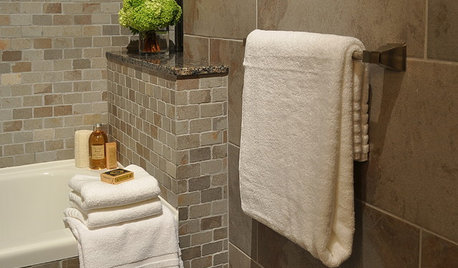
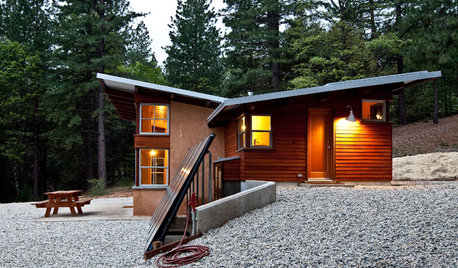
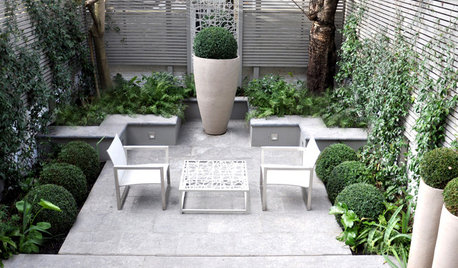
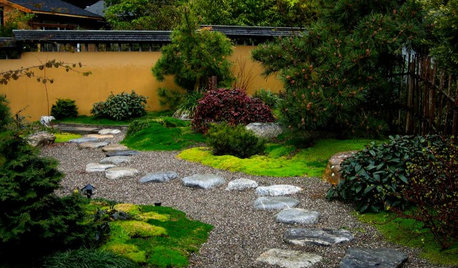

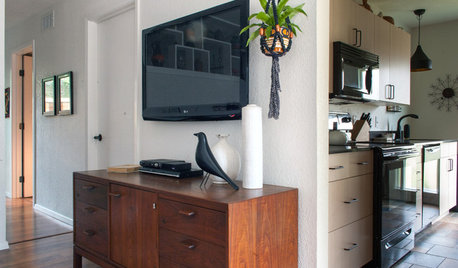









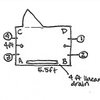
MichelleDTOriginal Author